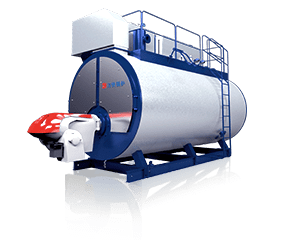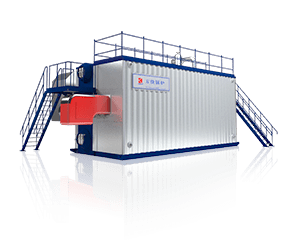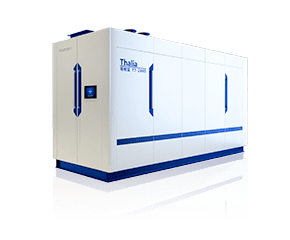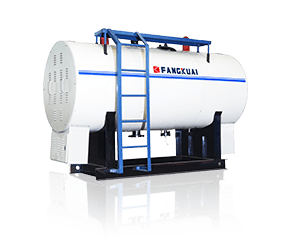There are two main types of hot water heaters: on demand and tankless. While both have their advantages, the former is generally more cost-effective than the latter. On Demand or Tankless Water Heaters? Hot water heaters come in two main types: on demand and tankless (also known as instantaneous). The way they work and the benefits they provide are very different, so let's take a look at both systems before deciding which one is right for you.
TABLE OF CONTENTS

On Demand or Tankless Water Heaters.
If you are looking to install a hot water heater in your home, there are two main types of water heaters that you can choose from: on-demand and tankless. The main difference between these two types of hot water heaters is their size. On-demand or tankless water heaters are smaller than conventional storage tanks, which means they use less energy and space. However, they also tend to be more expensive than tankless units because the parts used in their construction are more advanced.
Tankless (on demand) water heater.
If you have an outdoor temperature that is consistently below 40 degrees, it may be time to consider a tankless (on demand) water heater. These heaters are more efficient than traditional tanked water heaters because they only use the amount of energy needed to heat the water on demand. Additionally, they do not waste any energy by keeping hot water in a tank when it isn't needed. Tankless models cost more than traditional models and require more space due to their smaller size and lack of storage capacity at full power. They also tend to be less reliable as they have fewer moving parts compared with conventional tanked models.
However, one benefit of these systems is that they have a life expectancy of 20 years or greater—much longer than most other types of heating systems that last about 10 years on average!
How does a boiler work for hot water?
If you have ever wondered how a boiler works for hot water, it's not as complicated as it might seem. Boilers use a heat source to heat water by condensing steam into liquid form and sending it through pipes. This creates pressure, which then forces hot water through the pipes and into your home.
The most common type of boiler is an electric or gas-powered tankless system that heats water on demand using natural gas or propane fuel. The system consists of an energy efficient burner, which burns fuels such as oil or natural gas to produce heat within the unit itself; an outdoor exhaust fan; indoor venting system with ductwork; controls for temperature regulation and automatic start/stop operation; and various safety features such as ignition interlock switches (which prevent accidental ignition), flame monitoring sensors (to ensure that flames are always present) and manual shutdown devices (to shut off production if needed).

Does a combi boiler give instant hot water?
A combi boiler is a central heating system which also produces domestic hot water. It works by storing high-pressure water in its tank, then releasing it as needed. This means that you can get instant hot water from your taps at all times, unlike a storage heater which heats up cold water as you use it – meaning slower delivery and waiting around for the tap to become warm enough to wash hands or brush teeth.
A typical combi boiler costs around £1k to install and will cost about £200 per year in electricity bills on average – but this figure depends on how much hot water you use every day.
Can you use a hot water heater as a boiler?
An electric hot water heater is a type of water heater that uses electricity to heat water. It does not produce steam or generate its own heat, so it cannot be used as a boiler.
Hot Water Heater: When you turn the handle on your hot water faucet, what turns on? The air conditioner? No! The heating system? No! You turn on the hot water heater. You can think of it as an electric kettle or tea pot that heats up tap water and stores it ready for use in an insulated container (the tank).
Boiler: A boiler is a piece of equipment that supplies steam or hot gas through pipes to radiators and other heating systems throughout your building's structure—it heats them up using fuel like natural gas or propane.

How much is a hot water heater boiler?
The amount you pay for your hot water heater boiler depends on the type of unit you choose and the company from which you purchase it. The average price ranges from $400 to $1,500 depending on size and heat output. Prices can also vary depending on whether or not installation or replacement costs are included in your quote.
For example, if you buy a new hot water tank from Lowes for $400 and have them install it for free, then your total cost would be $400 plus tax (if applicable). If instead, you decided to hire a plumber who charges $200 per hour with no minimum charge; then his total bill would equal 8 hours times $200 per hour plus tax—and that’s assuming he doesn't charge much more than other plumbers in your area!
Conclusion.
A hot water heater boiler is a great way to get hot water with no wait time. They are very efficient and can save you money in the long run because they don't have to be replaced as often as tankless or traditional models do. The only downside is that they are typically more expensive upfront than other types of systems, but if you're looking for an investment that will pay off over time then this might be right up your alley! If not, let us know what kind of system would work best for your household needs. If you want to know more about hot water heater, please contact us: +0086 186-2391-5479.








